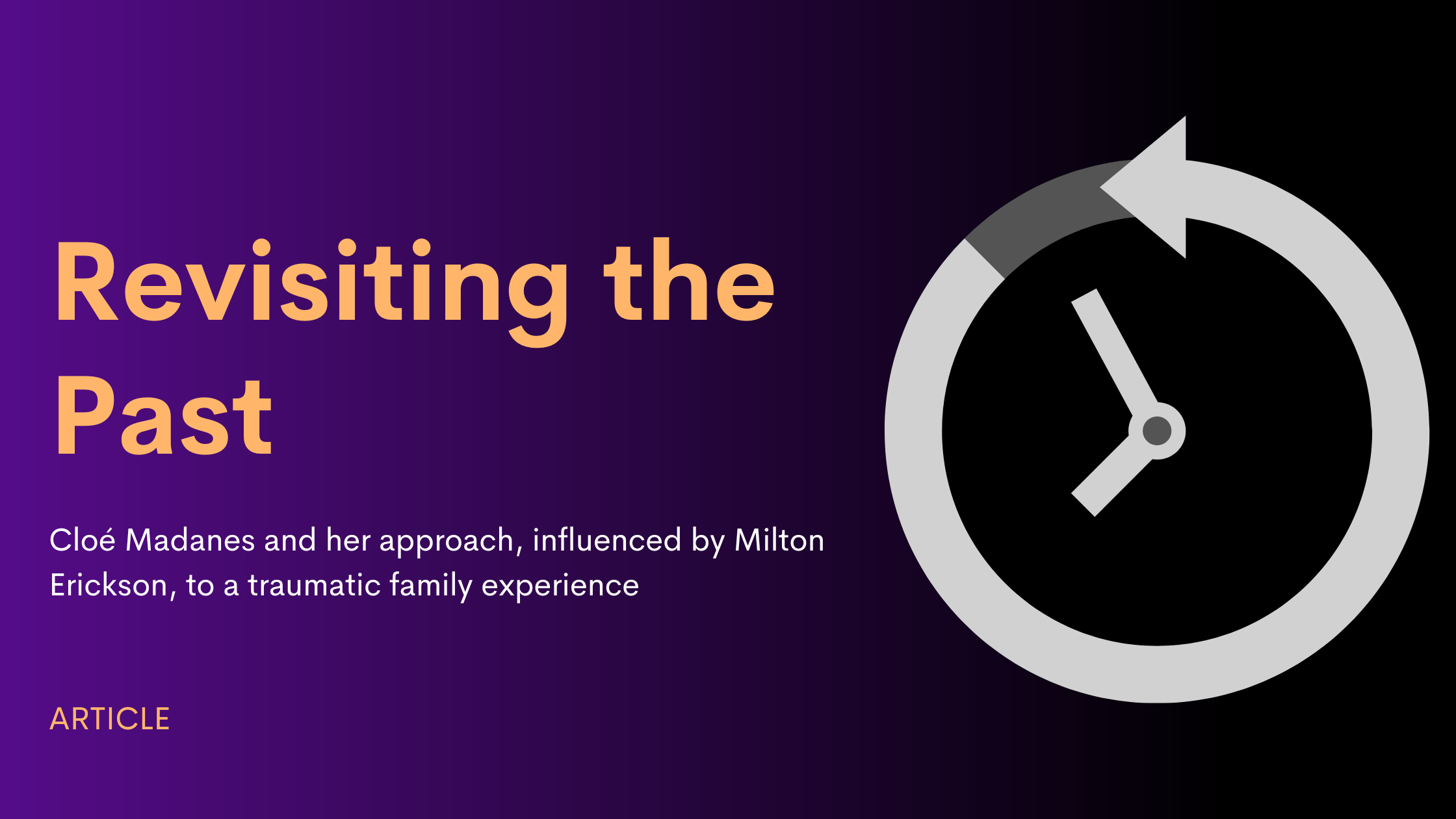Revisiting the Past
By Cloé Madanes
Estimated Reading Time: 4 minutes, 33 seconds
The voice of the man on the phone was cracked and old. He and his wife were in their seventies and for 20 years the family had not been able to have a Christmas, a birthday, or any celebration together. There were four children and it was the enmity and resentment from Melissa, now 40- years old, to Michael, now 45, that precluded any type of family gathering. Melissa had announced, at age 20, that Michael had sexually molested her from the time she was ten until she was fourteen. Ever since then the family had been torn apart.
Melissa led an isolated life. She had never been in a relationship with a man and she had never even had a roommate. She was a lawyer but had never practiced and worked sporadically at jobs that were beneath her education. She attributed all this to her abuse by Michael.
I first interviewed each family member separately starting with the parents. It was obvious that they felt guilty for what happened to Melissa and shocked that this had actually happened in their home for four years without their knowledge. Then I saw Melissa. She told me that Michael had raped her and had sexual intercourse with her for four years. She had been frightened to tell the parents but she also admired him and feared his rejection. To add insult to injury the sexual relationship had stopped when Michael found a girlfriend. When Michael talked to me he expressed how tormented he had been all his life for what he had done to Melissa and how he could never stop thinking about it.
I gathered everyone in the living room and started by asking each person, one by one, what they knew about Michael’s abuse of Melissa. Then I asked Michael to explain why what he had done was wrong. He cried as he talked about how he had hurt Melissa, used her, and harmed her deeply. Then I asked the parents to help him understand better why what he had done was wrong. They talked about a little girl looking up to her big brother, the fears she developed, and the loss of innocence. I said that what Michael had done was wrong for one most important reason and that is that he had caused a spiritual pain in Melissa, a pain in her soul. I said that what Michael had done had also caused a spiritual pain in the mother, in the father, and in every family member.
Then I asked Michael to get down on the floor on his knees in front of Melissa and express his sorrow and repentance for what he did, taking full responsibility for the abuse. I told Melissa that I wasn’t asking her to say anything or to respond in any way. The family was to observe and decide if Michael was sincere. If not, he would have to do this over and over again until everyone agreed that he was sincere. Michael did as I said and stayed on his knees for a long time crying. Everyone agreed he was sincere. Then I asked the other family members, one by one, to get on their knees and express their sorrow and repentance to Melissa for not having protected her from Michael. After the apologies, I continued with a discussion of reparation and it was agreed that Michael would do many hours of community service.
I met briefly with the family the next day and they agreed that all would have an ongoing relationship and meet from time to time at the parents’ home. On follow up months later, Melissa had found a job as an attorney and was living with a man she loved. She told me she was having the best time of her life.
My approach derives from the work of Milton Erickson in that it takes into account the entire social system of the individual; the therapy is directive, and the main intervention is a ritual. Erickson was a master of focus, meaning, and physiology. In my approach the apology includes a precise choice of words – I asked Michael specifically to express his sorrow and repentance and to say that he took full responsibility for the abuse. The focus is on responsibility and repentance – when one person has harmed someone the healing of both the victimizer and the victim must begin with the offender taking responsibility for his actions and expressing repentance. This is particularly important in ongoing incest because the offender typically uses an almost hypnotic procedure to confuse the victim to the point that the child might feel that she provoked the sexual abuse. When the offender takes responsibility in front of the whole family this is a strong message to the victim that she didn’t bring this upon herself. The physiology of humility and repentance comes from the posture of being on the floor on one’s knees and is a universal ritual that gives credibility and anchors the emotion of sorrow and repentance. This is a powerful tool for preventing repeat offenses. The family needed to formally (in the presence of a therapist) recognize how Michael had harmed Melissa; Michael needed to take responsibility for his actions and express repentance; and then Melissa would be able to set aside the past and move forward with her life.
This excerpt has been extracted from Volume 25, Issue No. 3 of The Milton H. Erickson Foundation Newsletter.
You may like…


